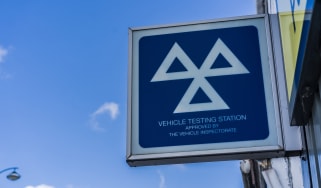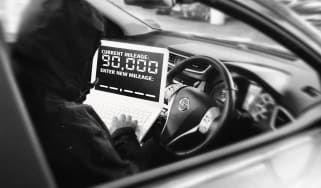What are voluntary and compulsory excess on your car insurance?
The excess charges, both voluntary and compulsory, are a key part of your car insurance policy. Here’s how they work…

Car insurance may not be the most exciting subject in the world but we can all get excited about saving money and a good way to save is to have a good understanding of how car insurance works. One of the terms you’ll encounter while arranging your car insurance policy is ‘excess’.
You’ll be told of the compulsory excess on an insurance policy and given the option of setting your voluntary excess yourself. In this article we’ll cover the meaning of these terms and everything you need to know to get the right policy with the right excess clauses for your needs.
What is excess on a car insurance policy?
In the world of car insurance jargon, excess is the amount you pay towards the cost of repairing your car in addition to the car insurance company payout. The excess means that there’s a personal cost to you of making a car insurance claim beyond what you pay annually or monthly for your insurance cover itself. As well as the threat of losing your no claims bonus, the existence of the excess clause on an insurance policy acts as a deterrent to making claims so there’s no surprise that it’s popular with car insurers.
What is compulsory excess?
The compulsory excess on a car insurance policy is an amount set by the car insurer and baked into the insurance policy. It is the amount you will have to pay towards the cost of any car insurance claim you make against the policy. If your insurance policy has a compulsory excess of £200 that means that you will pay the first £200 towards any repair bill and the insurance will take care of the rest.
The compulsory excess cannot be changed once you’ve taken out the policy but different policies will have different levels of compulsory excess. If you’re a higher risk driver the compulsory excess you’re offered will probably be higher than for lower risk drivers.
What is voluntary excess?
In addition to the compulsory excess, your insurer will also give you the option of setting the voluntary excess on a policy. The voluntary excess is a further amount that you agree to pay towards the cost of any repair that you make a claim for.
Crucially, the level you set the voluntary excess at will impact on the cost of your insurance policy. If you set a high excess, you reduce the risk to the insurer and your premiums will be lower but you are increasing the risk to yourself and it’s vital to set the voluntary excess that means you can still afford to get your car repaired.
If you have a compulsory excess of £200 on your policy and you set the voluntary excess at £200, you will have to pay the first £400 of any claim you make on your car insurance. If the claim was for £1,000, the insurer would pay the remaining £600.
The excess clause in the insurance policy has the effect of making smaller claims uneconomical. It stops motorists making claims with a value lower than the excess on their policy but even claims slightly higher than the excess charge aren’t worth it.
For example, if you are on a policy with a £400 total excess charge, it is unlikely to be worth the hassle of making a claim for a £500 repair considering that the insurer would only pay £100 of that bill and you will lose your no claims bonus if it isn’t protected.
Even if you decide not to make a claim after an accident, you must still inform your insurer of any damage to your car or you risk voiding your policy.
What should I set my voluntary excess at?
Setting your voluntary excess is a balancing act between saving money on the cost of your annual insurance policy and making sure that any car repairs you might have to claim for are affordable.
It’s usually possible to save between 5 and 7 per cent on your annual car insurance premium by agreeing to a £250 voluntary excess. You could set that voluntary excess at £0 or go much higher for bigger savings. Most insurers give the option of setting the voluntary excess between £200 and £1,000.
The thing to remember is that the higher you go, the more any insurance claim is going to cost you. If you set your voluntary excess too high and end up with a large car repair bill you might find that you cannot afford to get your car repaired at all.
You need to have an idea, when setting the voluntary excess, of how much you could afford to pay if such a large repair bill came about. And how much you’d be willing to pay to get those lower insurance premiums. If you can’t pay the excess on a claim, the insurer may not pay out.
Car insurance excess examples
We sourced some example car insurance quotes from a well-known UK insurer for a 42-year-old man living in Banbury, Oxfordshire. He has two years no claims bonus, drives 8,000 miles per year and is insuring a one-year old Ford Focus Estate.
The policies offered showed significant savings by adding a small voluntary excess but the amount saved diminished as larger amounts of excess were added. This pattern will vary from applicant to applicant so make sure your try different amounts of excess when you take out your car insurance policy to see what effect it has on the cost of the policy and get the right balance.
| Quote number | 1 | 2 | 3 | 4 | 5 |
|
Compulsory excess |
£350 |
£350 |
£350 |
£350 |
£350 |
|
Voluntary excess |
£0 |
£100 |
£250 |
£500 |
£1,000 |
|
Total excess |
£350 |
£450 |
£600 |
£850 |
£1,350 |
|
Annual insurance premium |
£855.68 |
£792.66 |
£766.63 |
£729.66 |
£726.25 |
When do I pay the excess?
Exactly when the insurer actually asks you to pay the excess charge will vary so check the small print on your policy. It might be that you’ll have to pay the excess upfront when you submit the insurance claim or you might pay at the end of the claims process when the insurer pays its share of the repair bill.
If the accident that caused the damage wasn’t your fault and your insurer is claiming against the other party’s insurance policy you still have to pay the excess. Your insurer may recover the charge and refund it to you but this can take time. If the other party in an accident doesn’t have insurance or cannot be traced you could end up having to pay the excess regardless of whose fault the accident was.
Frequently Asked Questions
If you're looking for a cheap car insurance quote, try our comparison tool powered by Quotezone...
Find a car with the experts








